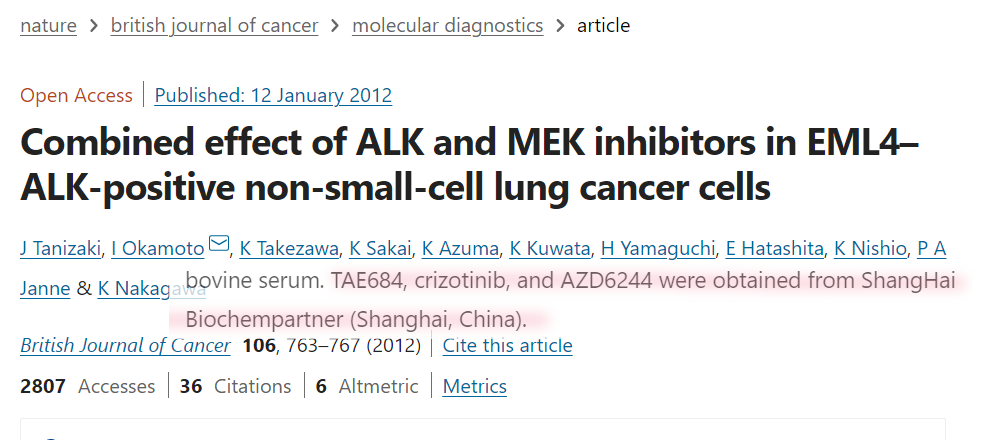Combined effect of ALK and MEK inhibitors in EML4–ALK-positive non-small-cell lung cancer cells

Abstract Background: Although most non-small-cell lung cancer (NSCLC) patients with the echinoderm microtubule-associated protein-like 4 (EML4) – anaplastic lymphoma kinase (ALK) fusion gene – benefit from ALK tyrosine kinase inhibitors (ALK-TKIs), the efficacy of these drugs varies greatly among individuals. Methods: The antitumour action of ALK-TKIs in EML4–ALK-positive NSCLC cell lines was evaluated from their effects on cell proliferation, signal transduction, and apoptosis. Results: The ALK-TKI TAE684 inhibited cell proliferation and induced apoptosis, in association with inhibition of STAT3 and ERK phosphorylation, in EML4–ALK-positive H3122 cells. TAE684 inhibited STAT3 phosphorylation, but not ERK phosphorylation, and it showed little effect on cell proliferation or apoptosis, in EML4–ALK-positive H2228 cells. The combination of TAE684 and a MEK inhibitor-induced marked apoptosis accompanied by inhibition of STAT3 and ERK pathways in H2228 cells. Such dual interruption of STAT3 and ERK pathways induced downregulation of the antiapoptotic protein survivin and upregulation of the proapoptotic protein BIM. Conclusion: Our results indicate that interruption of both STAT3-survivin and ERK–BIM pathways is required for induction of apoptosis in NSCLC harbouring EML4–ALK, providing a rationale for combination therapy with ALK and MEK inhibitors in EML4–ALK-positive NSCLC patients for whom ALK inhibitors alone are ineffective.




